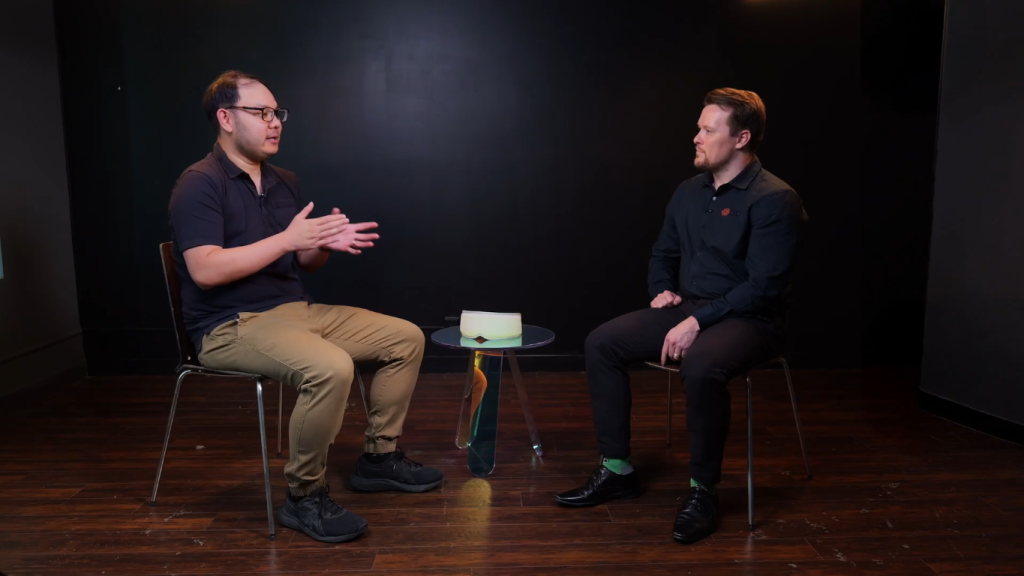Bía Sleep Podcast: What I Shared About How CBT-I Helps You Rebuild Restful Sleep

When I joined the Bía Sleep Podcast recently, we talked about one of my favorite topics, Cognitive Behavioral Therapy for Insomnia (CBT-I) and how it helps people rebuild trust in their body’s ability to rest.
As a social worker and sleep therapist practicing across Canada, I’ve seen firsthand how sleep struggles can slowly chip away at mental health, productivity, and emotional balance. In our conversation, I shared why insomnia isn’t just about not sleeping enough, it’s about the anxious relationship we form with sleep itself, and how CBT-I helps us change that.
Why Sleep Is the Foundation of Mental Health?
For most people I work with, sleep problems didn’t appear overnight. They often began during periods of stress or change, a new job, caregiving, anxiety, or trauma. Over time, the body may crave sleep, but the mind remains alert. That ongoing struggle to “try to sleep” only fuels frustration and anxiety.
Sleep is deeply tied to mental health. Research consistently shows that disturbances in sleep often appear before mood or anxiety symptoms worsen. Addressing sleep early isn’t just about improving rest, it’s about preventing deeper emotional burnout.
Understanding Insomnia: When Effort Backfires
Insomnia is one of the most common sleep disorders. It’s not simply sleep deprivation, it’s when you have the opportunity to sleep but can’t, often because of anxiety, tension, or a restless mind.
In therapy, I remind clients that insomnia often begins as a short-term stress response but can become chronic when the fear of not sleeping takes over. The harder you try to force sleep, the more your brain associates bedtime with frustration and alertness. CBT-I works by breaking that cycle.
Listen to the podcast below:
The Four Key Components of CBT-I
During the podcast, I walked through the four evidence-based pillars of CBT-I that help retrain the brain and body for rest:
- Cognitive Restructuring (Challenging Unhelpful Sleep Thoughts)
Many people with insomnia worry, “If I don’t sleep, tomorrow will be ruined.”
CBT-I helps you test those thoughts against reality: have there been nights you slept poorly but still made it through the day?
Replacing catastrophic thinking with realistic, compassionate thoughts like “Sleep will come when my body is ready” reduces anxiety and helps you rest.
- Sleep Restriction (or Compression)
If you spend 9 hours in bed but only sleep 5, your brain begins to associate bed with wakefulness.
In CBT-I, we temporarily limit the time spent in bed to match the amount you actually sleep. This builds stronger sleep pressure, so you fall asleep faster and stay asleep longer. As efficiency improves, the sleep window gradually expands.
- Stimulus Control (Rebuilding Positive Bed Associations)
Your bed should signal rest, not frustration. If you can’t fall asleep or wake up during the night, it’s better to get out of bed and do something calm; read, stretch, or sit quietly until sleepiness returns. Over time, your brain learns that bed equals sleep again.
- Behavioral Adjustments and Consistency
We use tools like a sleep diary to track sleep patterns, wake times, and energy dips. Consistency in wake-up time even on weekends trains your circadian rhythm. This is why I often say: “Anchor your morning, and your nights will follow.”

Breaking the Cycle of Sleep Anxiety
A major goal of CBT-I is to help you reduce the struggle with sleep.
When we release the pressure to perform to fall asleep on command, the nervous system relaxes and allows sleep to emerge naturally. One technique I often share is called “thought parking.”
Before bed, jot down worries or to-dos so your mind knows it doesn’t have to hold onto them. You can tell yourself, “I’ll come back to these tomorrow.”
This small act can free your mind from looping thoughts that keep you alert at night.
Learn why your body can feel exhausted while your mind stays wide awake!
Personalizing Sleep, Not Perfecting It
One point I emphasized on the podcast is that good sleep looks different for everyone. Social media can make it seem like there’s a “perfect” bedtime or the ideal 8-hour window. In truth, the right amount of sleep depends on your body, lifestyle, and responsibilities.
For some, six and a half hours feels refreshing. For others, eight is ideal. My job isn’t to force a rule, it’s to help you understand what “rested” means for you.
This is why general sleep hygiene tips don’t always help people with chronic insomnia, they often already know them. What they need is a structured, compassionate approach that retrains both mind and body to rest.
Acceptance, Flexibility, and Self-Compassion
In recent years, I’ve also integrated techniques from Acceptance and Commitment Therapy for Insomnia (ACT-I) into my sessions.
ACT-I teaches you to respond differently to thoughts like “I’ll never sleep again.” Instead of fighting them, you acknowledge them and gently shift your focus to rest and self-care.
A simple mindset shift from “I must sleep now” to “I’ll rest until sleep comes” can transform how your body responds to nighttime anxiety.
Technology and Sleep: Finding Balance
Wearable devices and sleep apps can be useful, but I encourage people to use them thoughtfully.
Tracking can help identify trends but it can also fuel something called orthosomnia, or anxiety caused by trying too hard to perfect sleep.
Sleep isn’t a performance to optimize; it’s a biological rhythm to respect.
Instead of obsessing over numbers, focus on how you feel during the day. Are your energy levels steady? Are you more patient, focused, or emotionally grounded? Those are better indicators of progress.
Find out how to bounce back after poor sleep with strategies that support both your mind and body.
Final Thoughts: Rebuilding Trust in Sleep
Sleep isn’t something you do, it’s something that happens to you when your mind and body are ready.
Through CBT-I, I help clients rebuild that trust. When we reduce pressure, practice consistency, and approach ourselves with compassion, restful sleep becomes possible again.
If you’ve been struggling with insomnia or anxiety around sleep, know that you’re not alone and that help exists.
Ready to transform your relationship with sleep? Get my 6-week Gently to Sleep program and take the first step toward restful nights and energized days or contact us to schedule your free sleep consultation!
